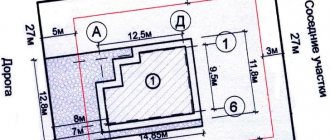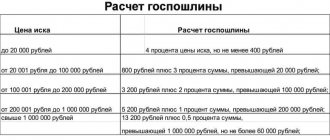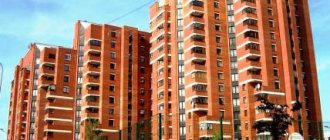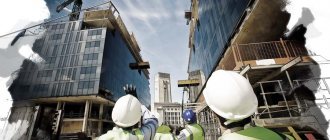Today, many people are wondering how to convert non-residential premises into residential ones; as a rule, this is due, first of all, to the emergence of the opportunity to increase living space. Various commercial premises (retail, warehouse, production, extensions, objects of social significance, etc.), as well as country houses and other buildings erected on lands intended for individual housing construction, are subject to transfer to the housing stock. The absence of official registration of the transfer of a non-residential property to housing will not allow the owners of the premises to carry out any registration actions, as well as perform any actions related to the alienation of property (donation, agreement for the sale and purchase of an apartment/land, etc.). The procedure for transferring premises from non-residential to residential is determined by the housing legislation of the Russian Federation; the procedure for transferring to residential premises is directly regulated by Art. 22 Housing Code of the Russian Federation.
Restrictions for transfer to residential premises
According to Russian legislation, a premises is considered residential if it has isolated status and meets all sanitary-epidemiological and fire-technical standards necessary for human habitation. Accordingly, the premises transferred to the housing stock, in addition to sufficient living space, must have auxiliary rooms in the layout to satisfy the household needs of the residents (bathroom, kitchen). A detailed list of technical requirements that future housing must meet is listed in Section II of the Regulations adopted by Decree of the Government of the Russian Federation No. 47. Non-residential premises to be transferred from non-residential to residential must be free from any encumbrances and not be the subject of foreclosure, seizure or pledge . Also, the status of non-residential premises cannot be transferred to the status of residential if it belongs to an individual or legal entity on the basis of ownership under the terms of a lease or mortgage agreement for a certain period. At the same time, the list of restrictions that may affect the final result of the transfer from non-residential to residential includes the following requirements and conditions:
- The premises must be part of a real estate property located on a zoned residential area, equipped with all engineering and technical communications.
- All load-bearing structures of the future residential property must strictly comply with the operational condition and not have any cracks or deformations that could later pose a danger to life.
- All communication systems in future residential premises should be located in accessible places, but without the risk of injury to residents.
- The future residential premises must be equipped with special systems for protecting against leaks of domestic water, as well as melt and rain water.
- The residential premises must be fully equipped with utilities, including electrical networks, ventilation, heating, gas and water supply systems that meet sanitary and technical safety standards.
If it is necessary to redevelop or reconstruct the premises to meet the above requirements, all work must be carried out before submitting an application to the relevant authorities for the transfer of non-residential premises to residential use. According to paragraph 43 of the said Regulations, the selection committee assesses the condition of the premises upon inspection.
According to the norms of the Land Legislation of the Russian Federation, the transfer of dacha properties located outside the boundaries of populated areas on agricultural lands to residential premises is not allowed.
How to convert commercial property into residential?
Let's define the concepts.
Expert opinion
Stanislav Evseev
Lawyer. Experience 12 years. Specialization: civil, family, inheritance law.
Residential real estate is understood as a premises (separately standing or as part of an apartment building) that is intended for the residence of citizens. It must have amenities (electricity, water supply, heating). A prerequisite is the presence of a foundation. Residential real estate must be a capital construction project.
Commercial real estate is understood as an object intended for carrying out business or other economic activities. This is an office, industrial premises or retail outlet.
In some cases, the owner of a non-residential property wants to assign it residential status. As a rule, such a need arises among citizens who have built premises on a garden plot, apartment owners and other persons actually living in commercial real estate.
The disadvantage of living in such premises is the impossibility of obtaining registration. As well as high utility rates and increased taxes.
Peculiarities
The procedure for transferring an object requires compliance with the following conditions:
- has no encumbrances (seizure, pledge, mortgage);
- is a capital construction project or part of it;
- equipped with heating and electricity;
- located within a populated area;
- Suitable for year-round use.
Thus, converting a commercial property into a residential property is not that easy.
Also, re-registration will require the consent of all owners.
Where to apply to transfer non-residential premises to housing stock
The issues of re-registration of the status of non-residential premises into residential ones are dealt with by local government bodies. In large cities, an application can be submitted to territorial administrations, the Housing Department of the Municipal Property Department, the Department of Municipal Economy, in small cities - to district and executive bodies. In particular, in Moscow, these issues are considered in the Department of Design and Approvals and the Department of Housing Policy and Housing Fund.
List of documents
Changing the status of the premises requires the preparation of the following documents (Article 23 of the RF Housing Code):
- passport;
- application for change of status;
- title documentation (in originals or copies certified by a notary);
- reconstruction project (documented in accordance with the procedure established by law);
- floor plan of the house (if the premises are located in an apartment building;
- minutes of the general meeting (if the object is located in an apartment building);
- personal written consent of all owners of adjacent apartments;
- extract from the Unified State Register of Real Estate.
In accordance with the law, a citizen may not provide a number of documents (floor plan, extract from the Unified State Register, title data). They can be requested as part of interdepartmental cooperation.
Important! To speed up the process, it is advisable to prepare a complete package of documents yourself.
Documents required for transferring non-residential premises to residential premises
According to paragraph 2 of Art. 23 of the Housing Code of the Russian Federation, the list of documents that the owner must provide to transfer the premises from non-residential to residential includes:
- Application for transfer of non-residential premises to residential premises on behalf of the owner of the premises.
- Originals or notarized copies of documents confirming ownership of the premises (certificate of state registration, cadastral passport).
- Technical floor plan with a detailed description of the floor plan of the house (if the house is multi-story).
- A project for redevelopment or refurbishment of premises, if this is necessary to comply with established requirements for residential premises.
If there is state registration of the right to build a property in the Unified State Register of Real Estate, the applicant only needs to provide an application and a redevelopment project to formalize the transfer of non-residential premises to residential premises.
The package of documents, if it is necessary to clarify certain points, can be supplemented by the applicant at the request of the competent authorities (for example, a conclusion from a design and survey organization may be required regarding compliance with the urban planning requirements of the load-bearing and enclosing structures of the premises being transferred). The documents are accepted by the specialist, with the applicant issuing a receipt confirming that the package of documents has been accepted for consideration in full and indicating the date of acceptance. The period for consideration by the commission of the issue of transferring non-residential premises to residential premises is 45 days from the date of acceptance of the documents (clause 4 of article 26 of the Housing Code of the Russian Federation). Further, within 3 days the applicant must be notified of a positive decision or refusal of this procedure. Please note that if a negative decision is received, the refusal must be motivated with reference to the relevant conditions and requirements. Transfer to residential premises may be refused for the following reasons:
- failure to provide additional required documents;
- if the documents were sent incorrectly, that is, not to the competent authority;
- if the premises do not meet the technical requirements in accordance with the above Regulations.
In case of an unmotivated refusal, as well as disagreement with the decision made, the owner of the premises has the right to go to court.
Transfer of an object from residential (non-residential) status
Residential buildings
Converting a residential building into a non-residential building is quite a difficult task. Of course, the owner of an individual home does not have to ask permission from his neighbors. Even redevelopment may not be necessary (if the entire building is converted to non-residential, and not part of it).
How to transfer an object from the category of non-residential to residential?
Re-registration of a house or part of it from the category of non-residential real estate to residential is an extremely popular procedure. Previously, homeowners on the first floors were actively engaged in converting their residential premises into non-residential premises and converting them into offices and shops. But now the price of commercial real estate is low, and the cost of apartments is not falling. Therefore, there is a tendency to return apartments to the housing stock. Also, enterprises often refurbish and transfer their excess space to housing stock, for example, to set up dormitories. If it is technically possible to ensure a normal life for people, then such a translation is not a problem.
Garden houses
A separate issue is the transfer of a non-residential building into a residential one in SNT , dacha cooperatives. This topic is a common reason for private individuals to contact A-EXPERT. A residential house on a summer cottage has many advantages. It costs more, and you can register in it if you wish. But most of the buildings on summer cottages are so-called garden houses. But they do not belong to the housing stock. After the entry into force of Law No. 217 “On the conduct of ... gardening and vegetable gardening,” this type of non-residential buildings such as garden houses became much more difficult to classify as residential.
In fact, it is possible to register a garden house as residential from the beginning of 2021 only if the SNT is located in areas intended for individual housing construction. This creates a lot of difficulties for owners of country houses when converting them into housing stock.
If you want to convert a non-residential building into a residential one in your SNT, then make sure that this is not prohibited by the Land Use and Development Rules.
In order for a country house to be successfully recognized as residential, it usually needs to be reconstructed. It must be preceded by an examination that identifies all shortcomings and non-compliance with building codes. To submit an application for transfer, an opinion from an engineering expert commission is required. She checks the building for compliance with the “Technical Regulations on Safety...”.
When checking, the following is assessed:
- Presence and condition of necessary communications: septic tank, electricity, etc.
- Standards for thermal protection of enclosing structures (walls, roof, foundation.)
- Sanitary standards and room parameters (ceiling heights, etc.)
Based on the results of the examination, in order to recognize the garden house as residential, a detailed description of the housing and its location is drawn up. In the final part, conclusions are drawn about the object’s compliance with urban planning standards and recommendations for redevelopment and re-equipment are given. All this must be done at the stage of preparation for submitting an application to recognize the house as residential.
The detailed procedure for transferring a garden house to a housing stock is prescribed in Resolution No. 47, entitled “Procedure for recognizing a garden house as residential,” dated January 28, 2006. A competent examination from A-EXPERT will help you estimate translation costs and simply avoid refusal.
Apartments
Apartments are often excluded from the housing stock. Basically, it concerns real estate on the first and ground floors of apartment buildings, which the owners want to rent out or sell for commercial use. To perform this operation, you should know:
- The initiative for the transfer should come only from the owner of the property. No other persons or organizations may request that the apartment be transferred to a non-residential status. If the property is in shared ownership, then a notarized statement from all owners is required.
- It is required to obtain the consent of neighbors for the commercial use of real estate.
- The apartment should not have any encumbrances (loans, arrest, utility debts).
- It must be isolated from the residential part of the house (no passages or doors to the residential part), have 2 separate entrances from the street. To fulfill the last point, of course, you need a formalized redevelopment. And before this, an examination of the premises and a project completed according to the recommendations are necessary.
When transferring an apartment to a non-residential state, you will have to check it for compliance with fire, sanitary, urban planning, environmental and other standards, for which contact A-EXPERT!
Lawyer's answers to private questions
Is it possible to convert only part of the house into non-residential?
No. You can only translate the entire object: a house or an apartment. Changing the status of individual premises is not permitted.
What is the price of transferring to non-residential premises if a lawyer handles this?
Everyone has different prices. In the regions you should count on 50,000-70,000 rubles, in the capital and other large cities - from 100,000 rubles.
Is it possible to transfer an apartment to non-residential premises if it is located on the top floor?
Yes, if the remaining apartments on the lower floors are registered as non-residential.
The entrepreneur bought the apartments on the ground floor for a hotel. There was no separate entrance; visitors pass through the entrance door, and there is often crowds there. Is this legal?
No. The owner had to equip a separate entrance. In such a situation, you can complain about him to the housing inspectorate.
I am registered in an apartment on the first floor. The owner transferred her to non-residential premises without consulting me or taking my consent. Is it possible to challenge this somehow?
No. Registration does not give ownership of the property; the owner should not have taken the consent of the registered person. An exception is the acquisition of an object during marriage. In this case, the consent of the spouse is required, because property is considered generally acquired (Article 35 of the RF IC).
Is it possible to use residential as commercial and vice versa?
Using residential real estate as commercial and vice versa is prohibited by law.
The only possibility of such use can be identified only in the case when an individual entrepreneur is engaged in his professional activities (for example, tutoring or legal practice), but in this case (according to Article 17 of the RF Housing Code) the following conditions must be met:
- The legitimate interests and rights of other residents are not violated.
- Fire safety, sanitary and hygienic requirements, rules for the use of residential premises and other requirements are observed.
- There is no industrial production located.
Why can’t it be used legally and what could be the consequences?
The Civil Code clearly regulates the use of residential real estate in Art. 288 and 671 of the Civil Code of the Russian Federation: residential premises are intended only for residence (the owner, members of his family or, if the apartment is rented, tenants).
Consequences for unlawful (misdirected) use of real estate may be as follows:
- For using residential premises for purposes other than their intended purpose, the fine will be from 1 to 1.5 thousand rubles (Article 7.21 of the Code of Administrative Offenses of the Russian Federation).
- If the owner of a residential premises uses it for other purposes and at the same time systematically violates the interests and rights of neighbors (even after a warning from the local government), then he may lose his right of ownership of the residential premises (Article 293 of the Civil Code of the Russian Federation).
- For violation of the rules for maintaining and transferring residential premises to non-residential premises, a legal entity may be fined in the amount of 40 to 50 thousand rubles (Article 7.22 of the Code of Administrative Offenses of the Russian Federation).
- If people permanently live in non-residential premises, this will be a violation of the sanitary and epidemiological requirements that apply to the operation of premises. This will entail the imposition of an administrative fine:
- for legal entities in the amount of 10 to 20 thousand rubles or suspension of activities for up to 90 days;
- for an individual entrepreneur – from 1 to 2 thousand rubles or administrative suspension of activities for up to 90 days;
- for an individual – from 500 rubles to 1 thousand rubles.
What is more expensive: residential or non-residential premises
Typically, non-residential premises are more expensive, but it all depends on several factors:
- Location. An apartment located in the city center will cost more than a room on the outskirts.
- Infrastructure.
- Type of building and class of the house. In areas of mass standard development, non-residential premises on the ground floors are in great demand and are more expensive than in luxury buildings.
Note: lately developers have been selling apartments that are cheaper than apartments. In the future, they can be transferred to residential premises, or used for business activities.
Where to contact
The body authorized to change the status of the premises is the housing committee of the district administration. Documents can be submitted in person or through the MFC.
However, the issue needs to be agreed upon in various authorities. The applicant must contact the architecture department, BTI, fire inspection and other authorities.
In 2021, you can entrust the process of changing the status of real estate to specialized organizations. Professional intermediaries will speed up the re-registration procedure, quickly and efficiently prepare documents and obtain consent for translation.
What to do if the transfer of residential real estate to commercial property is refused?
The re-registration of a residential building into non-residential premises, or vice versa, can be refused for several reasons (Article 24 of the Housing Code of the Russian Federation):
- Failure of the object to meet the established requirements.
- Providing an incomplete set of documents.
- Inconsistency of the redevelopment project with legal requirements.
- Providing documents to an unauthorized body.
The refusal is sent to the applicant in writing with an explanation of the reasons. If he does not agree with them and considers the actions of the administration to be illegal, this can be appealed through the court through administrative proceedings.
Terms of re-registration
The duration of the status change is set individually. The main difficulty is preparing and coordinating the redevelopment project and repair work.
Other stages have deadlines established by law.
| Stages | Deadlines |
| For consideration of the application | 45 days |
| To prepare a decision | 3 days |
| For registration of a cadastral passport and making changes to Rosreestr | 20 days |









